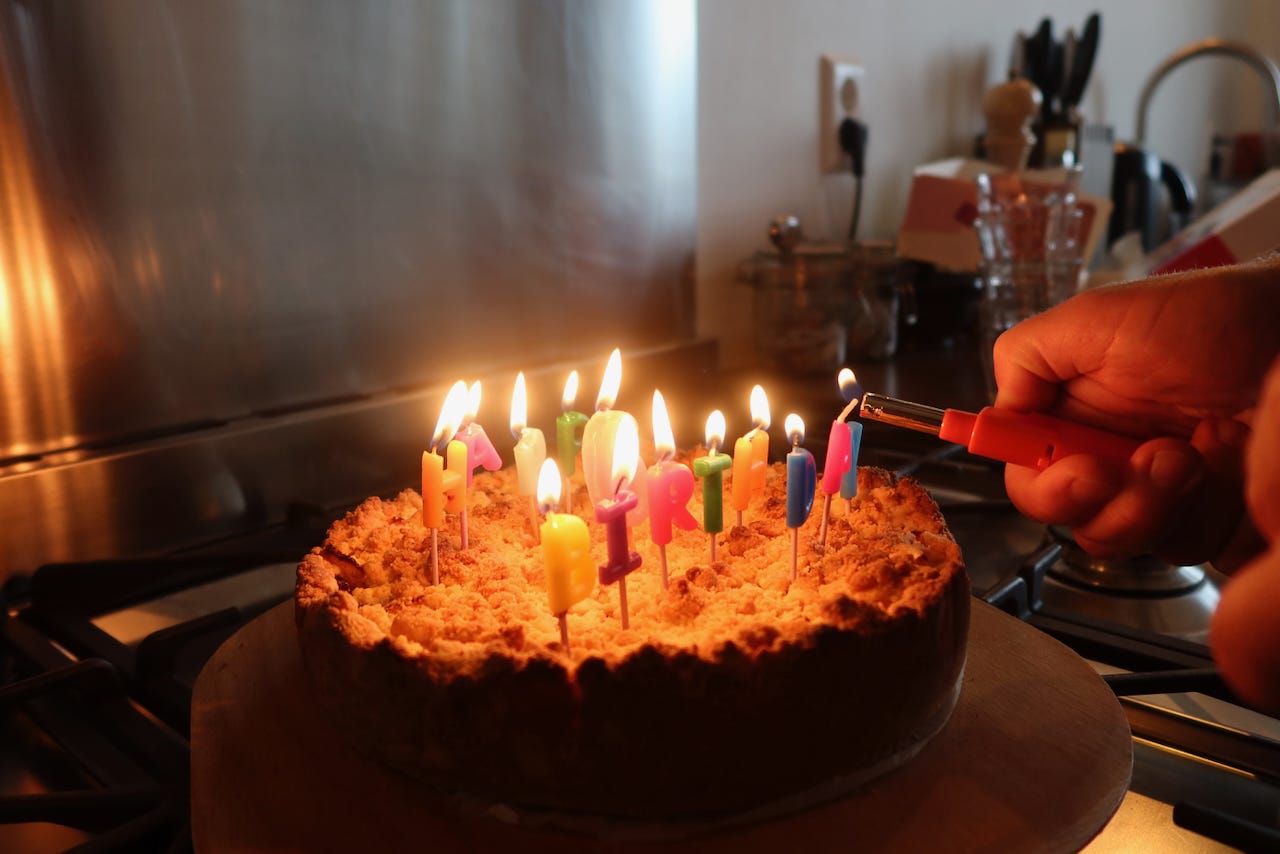#116 To light a match
Experience is a fancy word for the things we do on autopilot. More experience means more situations one can respond to without thinking. Selecting a bottle of wine from a restaurant’s wine list? The second cheapest. Picking the music at a work party? Spotify’s latest easy-listening playlist. What to wear to a meeting with senior civil servants? Colors. Lighting a match… Error!
Until this year, few things stressed me out more than lighting a match in anything but perfect conditions. (Perfect being indoors, well-rested, and armed with a brand-new pack of matches.) My experience was, well, nonexistent. On autopilot, I’d see the wood crack, the fire die out, and match after match fail to light a candle or burner.
One can get by easily without matches—using a lighter or, in my case, relying on the abundant electricity I’m typically surrounded by. But there’s always the campsite. And the possibility of an apocalypse. So, as number 24 on my list of things to learn, I settled on “light a match in adverse situations.”
Ever since reading Hilary Mantel’s A Place of Greater Safety, her vivid description of Camille Desmoulins calling Parisians to arms has stuck with me. The scene outside the Café de Foy, when Desmoulins jumpstarts the revolution by climbing on a table, has impressed on me the feeling that I should always be ready to start a revolution. Any stage I step onto, any Monday morning meeting I join, any rainy afternoon in a city center could offer a moment to light the spark of a just revolution—for climate justice and against rampant inequality. And to light a spark, I might have to light a match.
But how does one learn something that seems, by all accounts, easy? There are no courses on lighting matches, and most online tutorials focus on survival-grade matches designed to work in extreme conditions.
Turns out, the trick to lighting a match—wind or no wind—is the unambiguous act of doing it. Schwammm. No doubt. No hesitation. Just a single-minded purpose: light that match.
Last year I devoured Marie Arana’s biography, Bolívar: American Liberator. Simón Bolívar was ready when revolution called. Yet through Arana’s magnificent account, I learned that Bolívar’s path was anything but easy. He floundered and struggled to keep the spark of revolution alive, learning in hard, painful ways what it takes to liberate a continent. There was no template, no earlier experience to build upon: France’s revolution had failed, the United States’ liberated only its elites at the expense of millions of enslaved people, and even Haiti’s remarkable independence came at a terrible cost.
Bolívar succeeded because he went all in—riding harder, fighting braver, and thinking sharper than anyone else. More than experience, his revolution required unambiguous action.
A bit like lighting a match.
So, in 2024, I approached every candle like the Bastille, every campsite coffee like Boyacá—the first decisive battle in Bolívar’s campaigns. And it worked. Wind, exhaustion, distractions—nothing stops me now from starting a fire with a match. When revolution calls, I’ll be ready to light the spark.
In the new year, what is the smallest skill you’ll learn to be a true revolutionary when duty calls? I think I’ll focus on number 8: to whistle on my fingers.


It looks like someone else will have to focus on just the opposite coming Sunday, blow out the candles you have just successfully lit. In fact 11 in one single blow.